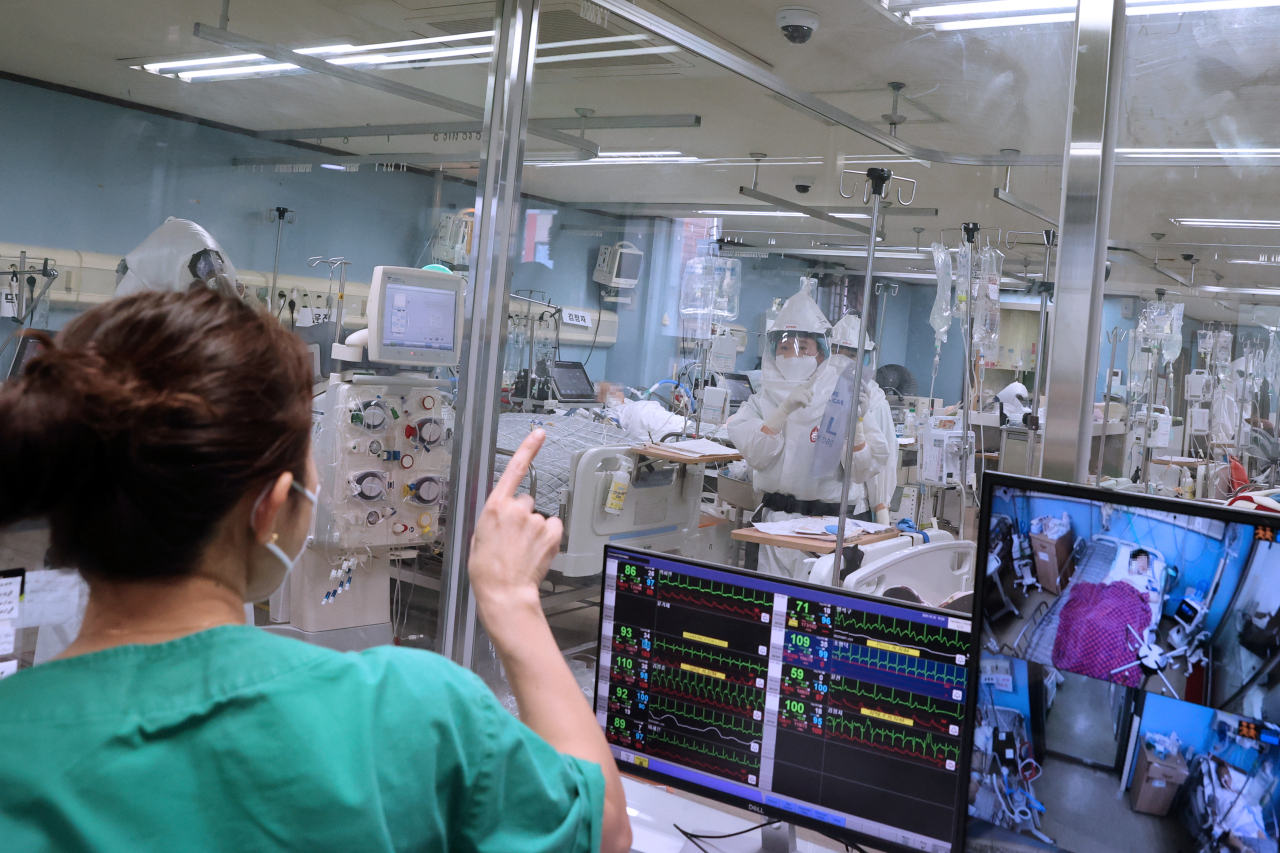South Korea is extending COVID-19 home recovery to elderly patients amid critical shortages of hospital beds, after ordering hospitals to free up beds twice in the past month.
In Seoul, which has long dealt with the largest surge of cases, patients aged 70 and older can now be prescribed home recovery if they are vaccinated and have other household members taking care of them. The city said as demand for hospital beds soar, more patients were being offered at-home care as an alternative.
As of Monday, more than 900 COVID-19 patients in Seoul had been waiting for a vacant bed for longer than 24 hours, the highest official count since statistics began. More than half of patients waiting to be admitted to hospitals were in their 70s and older.
Dr. Kim Woo-joo, an infectious disease professor at Korea University, said letting older adults recover from home warranted caution, even if they were vaccinated. He said that people in their 60s and older, most of whom got vaccinated earlier in the year, were more vulnerable to waning immunity in particular.
According to Korea Disease Control and Prevention Agency data released Monday, breakthrough infections were most common among people 80 or older, at a rate of 2,212 confirmed cases per 100,000 fully vaccinated people. Out of the 240 patients who have died after coming down with the disease post-vaccination, 209 were 70 or older.
Patients whose blood oxygen levels fall to 93 percent or lower while undergoing home care are advised to be moved to a hospital, according to Seoul guidance, but Kim said that at about 94 percent, pneumonia is likely to have already progressed. “Having patients wait until the oxygen saturation drops below 94 percent might be too risky,” he said.
Kim said the actual number of patients waiting for hospital care is probably greater than that revealed by the official data. He said, for instance, there were increasingly more home patients staying in the negative pressure section of hospital emergency rooms until a bed opens up, who are not included in the count.
Dr. Jung Ki-suck, onetime Korea Centers for Disease Control and Prevention director, said the latest scramble for beds reflected a lack of preparation on the part of both central and municipal governments.
“It took about two weeks for there to be patients left stranded without a bed,” he said.
The administrative orders forcing hospitals to make room for COVID-19 beds came after the phased return to normal that began Nov. 1, he said.
The government ordered Seoul-area hospitals to allocate a set amount of their intensive care beds for COVID-19 patients on Nov. 5, less than a week after opening up the country. Then again on Nov. 12, similar orders were issued to set aside non-intensive care beds.
As a result of the two consecutive orders for hospitals in and around the city, hundreds of beds for COVID-19 patients are expected to be added, the government said, but the process could take two to three weeks.
Jung added that anyone 70 or older should be considered high risk regardless of their vaccination status, and that they should not be subject to isolation in a non-health care setting. “This is not a patient-centered policy, it’s a public administration-centered policy,” he said.
Dr. Eom Joong-sik, another infectious disease specialist at Gachon University Medical Center, said that having patients in their 70s and older stay home “risked deaths.”
“It’s a decision that could lead to more out-of-hospital deaths,” he said.
Over the first three weeks of November, at least nine patients died while waiting for an available bed, according to official statistics.
For the past week, more than 80 percent of beds for the sickest patients have remained full in Seoul, as well as in nearby Incheon and Gyeonggi Province, hovering well above the threshold of 75 percent for pausing the return to normal. Across the country, nearly 70 percent of beds have been occupied.
Meanwhile, the Ministry of Health and Welfare remains firm that the current pandemic situation does not call for a pause on the return to normal. The ministry’s spokesperson Son Young-rae told reporters Tuesday that based on its situational assessments, restoring restrictions “does not appear to be necessary.”
By Kim Arin (
arin@heraldcorp.com)








